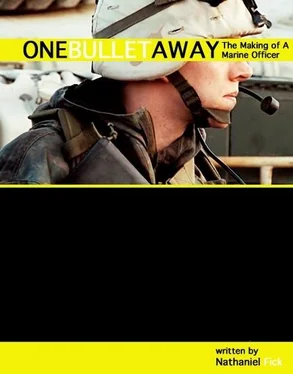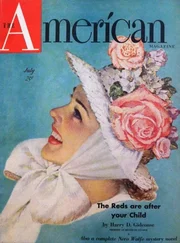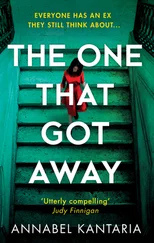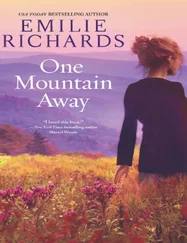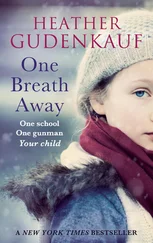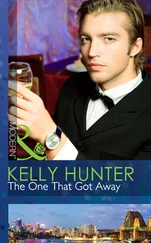In Virginia Beach, Sergeant Patrick stood unblinking as his commanding officer read the Bronze Star citation:
For professional achievement in the superior performance of his duties while serving in support of Operation Iraqi Freedom as Reconnaissance Team Leader, Team Two, Second Platoon, Bravo Company, First Reconnaissance Battalion, First Marine Division, from March, 2003 to May, 2003. On the night of April 1, while entering the town of Muwaffiqiya, Iraq, Sergeant Patrick was shot in an enemy ambush. While under hostile fire from three directions, he applied a tourniquet to his wound, resumed firing, and directed his team’s fire onto enemy targets, inflicting massive damage on the enemy forces. Sergeant Patrick remained in the kill zone and continued leading the Marines in his team until the enemy had been annihilated and his fellow Marines were out of harm’s way. Sergeant Patrick’s exceptional professional ability, initiative, and loyal dedication to duty reflect great credit upon himself and are in keeping with the highest traditions of the Marine Corps and the United States Naval Service.
We went to dinner afterward to celebrate, but we worried about our friends seven thousand miles away and wished we could be with them.
On my drive back to Washington, Cara called again. “Nate, I have some bad news.”
I pulled over to the side of the road, waiting as if watching someone wind up, in slow motion, to punch me.
“Captain Morel’s dead.”
Brent had been shot in the chest while leading the platoon’s counterattack. The Marines who fought to save him said that he had survived the golden hour. They recalled that when he died, aboard the casevac helicopter, he was so pale that his red hair had turned gray.
The new World War II Memorial in Washington had opened to visitors before its formal dedication. Still in shock over Brent’s death, I drove into the city under a full moon to see it. I needed a physical connection to sacrifice. Floodlights bathed the circle of granite slabs in a warm yellow glow, much less harsh than the stark white of the Lincoln Memorial and the Washington Monument. Elms towered just beyond the circle of light.
I walked clockwise around the central fountain, reading words carved in stone and letters left behind by family and friends. Three times I ducked into shadows to hide my tears. The names and faces were different, but these were the same men. At one end of the memorial stands a wall of gold stars — four thousand of them. Each star represents one hundred Americans killed in World War II. I stood and counted eight of those four thousand stars, a minuscule slice of the wall’s upper left corner. That was Afghanistan and Iraq combined. All the firefights, bombs, rockets, and helicopter crashes. Brent and Horsehead. All the heroism, blood, fear, humor, and boredom. Eight fucking stars.
I drifted after leaving the Corps. At age twenty-six, I feared I had already lived the best years of my life. Never again would I enjoy the sense of purpose and belonging that I had felt in the Marines. Also, I realized that combat had nearly unhinged me. Despite my loving family, supportive friends, and good education, the war flooded into every part of my life, carrying me along toward an unknown fate. If it could do that to me, what about my Marines? What about the guys without families, whose friends didn’t try to understand, who got out of the Corps without the prospects I had? I worried that they had survived the war only to be killed in its wake.
After channeling all my energy into applying to graduate school, I got a phone call from an admissions officer: “Mr. Fick, we read your application and liked it very much. But a member of our committee read Evan Wright’s story about your platoon in Rolling Stone . You’re quoted as saying, ‘The bad news is, we won’t get much sleep tonight; the good news is, we get to kill people.’” She paused, as if waiting for me to disavow the quote. I was silent, and she went on. “We have a retired Army officer on our staff, and he warned me that there are people who enjoy killing, and they aren’t nice to be around. Could you please explain your quote for me?”
“No, I cannot.”
“Well, do you really feel that way?” Her tone was earnest, almost pleading.
“You mean, will I climb your clock tower and pick people off with a hunting rifle?”
It was her turn to be silent.
“No, I will not. Do I feel compelled to explain myself to you? I don’t.”
I was frustrated as much by respect and attempts at understanding as by unfeeling ignorance. The worst were blanket accolades and thanks from people “for what you guys did over there.” Thanks for what, I wanted to ask — shooting kids, cowering in terror behind a berm, dropping artillery on people’s homes? There wasn’t any pride simply in being there. The pride was in our good decisions, in the things we did right. I hoped that I’d done more right than wrong, hoped that I hadn’t been cavalier with people’s lives. I was learning to accept that sometimes the only way to fight evil is with another evil, however good its aim.
In June, one year after coming home from Iraq, I dragged a childhood friend to the Civil War battlefield at Antietam in western Maryland. I wanted to walk the ground. Among the split-rail fences and restored cannons, I saw RPGs and fedayeen. Where would I have put my machine guns to defend the Cornfield? How would Hitman Two have assaulted the Bloody Lane?
The sun was warm on my arms, and bees buzzed through the tall grass as we meandered toward Burnside Bridge. There, on the afternoon of America’s bloodiest day, troops made three unsuccessful attempts to cross Antietam Creek under withering fire. We stood at the center of the span with our hands on the stones.
“Was it a waste?” I asked.
“No,” she replied. “They won, and Lincoln issued the Emancipation Proclamation. They freed the slaves, the way you freed the Afghans.”
I didn’t answer.
“Think about the women under the Taliban and the poor Iraqis under Saddam,” she continued, seizing a chance to change the subject. “You helped do so much good for so many people. Why can’t you take comfort in that?”
Staring down at the water, I measured my words, running through a justification I’d given myself a thousand times before. The good was abstract. The good didn’t feel as good as the bad felt bad. It wasn’t the good that kept me up at night.
“You sound so unprincipled,” she said, shaking her head. “Why can’t you find peace in what you and your men sacrificed so much to do? Why can’t you be proud?”
I took sixty-five men to war and brought sixty-five home. I gave them everything I had. Together, we passed the test. Fear didn’t beat us. I hope life improves for the people of Afghanistan and Iraq, but that’s not why we did it. We fought for each other.
I am proud.
AUTHOR’S NOTE AND ACKNOWLEDGMENTS
Although the feelings expressed here are mine, I believe that my platoons and our wars are generally representative of the larger Marine Corps. I relied heavily on my patrol logbooks, daily journal, frequent letters home, official histories, and the recollections of my fellow Marines. All events are portrayed honestly and are, to the best of my knowledge, historically accurate.
For further reading about the Marines and the warrior ethos, I recommend Mark Helprin’s A Soldier of the Great War , Michael Hodgins’s Reluctant Warrior , William Manchester’s Goodbye, Darkness , Steven Pressfield’s Gates of Fire , Tom Ricks’s Making the Corps , Jonathan Shay’s Odysseus in America , E. B. Sledge’s With the Old Breed , and James Webb’s Fields of Fire .
Читать дальше
